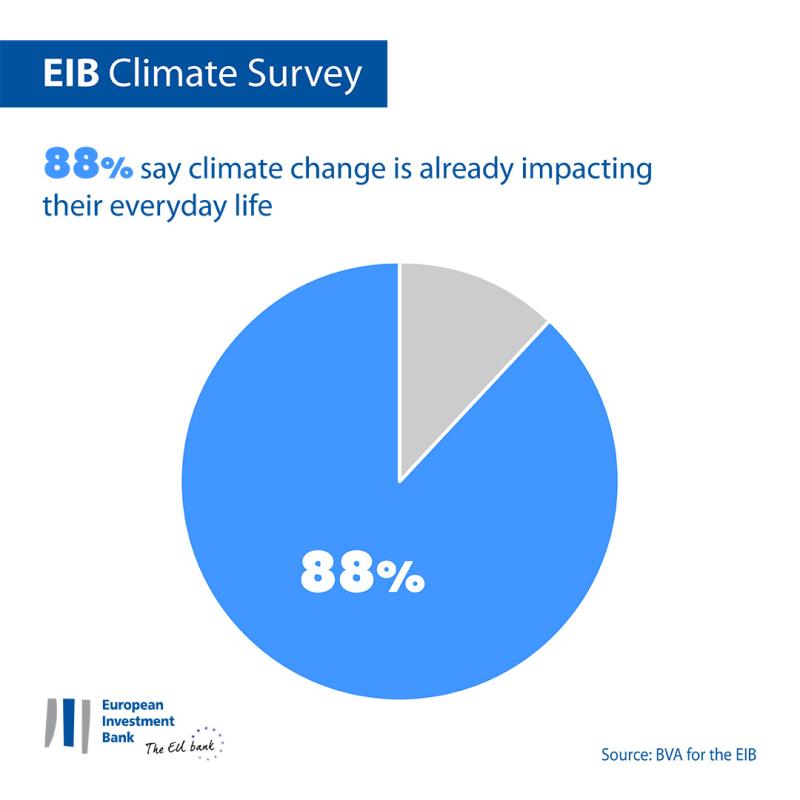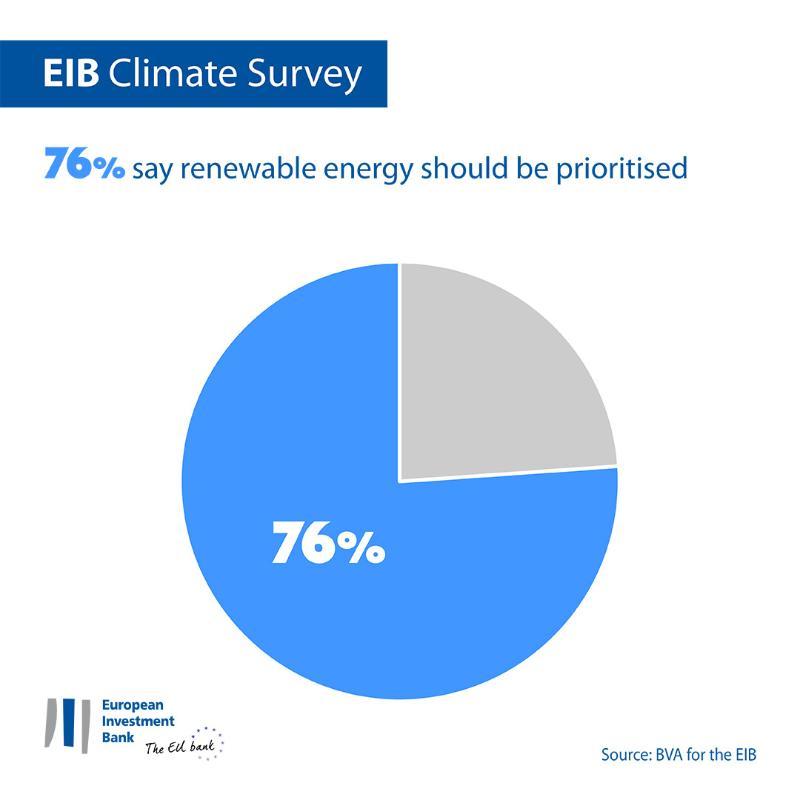Climate survey shows impact on Africa of climate change from water to jobs and a desire for green energy
Africa and the Middle East are highly vulnerable to climate change, with extreme weather, poor access to water, and rising temperatures threatening millions of people. Urgent action is needed to reduce greenhouse gas emissions, to build resilience to the impact of climate change and support populations that will be hurt the most.
The Intergovernmental Panel on Climate Change predicts that temperatures in Africa could rise 3°C to 4°C above pre-industrial levels by the end of the century, leading to significant problems for food supplies, water and public health. Water scarcity is already a big issue, and climate change is making this worse. Crop yields are expected to decline, leading to malnutrition for more people.
The European Investment Bank’s 2022 Climate Survey shows that for many people in these regions, the changes are being felt concretely today. The survey found that, for millions of people, climate change is making everyday aspects of life, such as accessing water or collecting firewood, more difficult. A significant majority of the people interviewed say climate change is hurting their income and making it harder to find jobs.

Africans reported that they are worried about inflation and access to health care, but they also are concerned about environmental degradation. More than three out of four want renewable energy to take priority over other sources of power — fossil fuels in particular — during the climate transition.
More than 28 000 people from 30 countries responded to our questions in August 2022. This feedback is an important way to hear from people around the world and understand how the climate is changing their lives. The survey tells us that many people in Africa and the Middle East are taking action themselves to adapt to climate change.
- Read why solar power is important for rural African communities.
Just over half (51%) of Africans responding to the survey cite environmental issues as the biggest challenge their countries face, ahead of inflation (41%) and access to healthcare (39%). When asked about the source of energy their countries should invest in to combat climate change, 76% of Africans said renewable energy should be the main one, far ahead of fossil fuels (13%) and nuclear power.

What can we do better in Africa?
The European Investment Bank is working more closely with African partners to accelerate climate action investment. EIB Global, the EU bank’s arm for operations outside the European Union, is intensifying its work by adding more experts in Africa, developing more partnerships in public and private sectors, and increasing work on the ground in countries that need the most help. Our climate surveys help us understand more clearly how these investments impact daily lives, and they are guiding our future initiatives.
The European Investment Bank has been working with African countries for nearly six decades. Our financing has provided access to clean energy for hundreds of millions of people in Africa. We improved water in many parts of the continent. We built flood protection in Burkina Faso, solar energy in Zambia, wind power and geothermal projects in Kenya, hydropower in Liberia Ghana and Madagascar, solar power in Benin for households and micro-entrepreneurs.
The Bank has invested around €60 billion in 52 African countries, supporting infrastructure projects, innovative firms and renewable energy, in the public sector and private companies, from microenterprises to the largest multinationals. We do this work because we are one of the biggest climate banks in the world, and because we want to help our neighbours and meet the greatest challenge on this planet.
- Read how Moroccan women are expanding their businesses in tough times.
